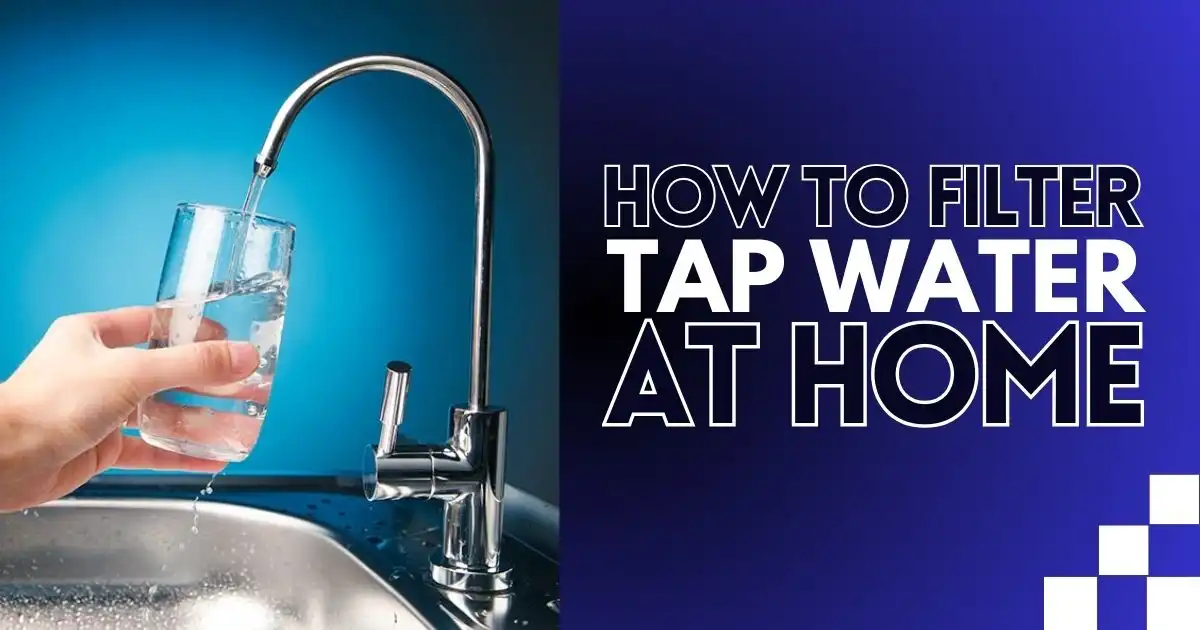Flash floods swept through parts of Las Vegas in 2024, damaging roads and homes. Combined with deadly heat waves and dangerous air pollution, these events are becoming more frequent and intense. Despite the risks, residents struggle to find reliable, local information. This lack of awareness is putting lives and property in danger every single year.
Residents struggle to find trustworthy information to prepare for disasters. With conflicting advice, many are confused. The effects of natural disasters, like flash floods and intense heat, are expected to worsen, leaving people vulnerable. This impact of natural disasters highlights the need for accurate guidance to reduce the effects of disasters on homes and health.
What are Natural Disasters in Las Vegas?
Natural Disasters in Las Vegas include a range of environmental threats that affect residents and infrastructure. Flash floods are common during monsoon season, while extreme heat waves regularly push temperatures above 120°F. The region is also at risk for earthquakes due to its proximity to fault lines, posing a potential threat to buildings and safety.
In addition to these risks, Las Vegas faces deteriorating air quality, worsened with pollution and wildfires. While hurricanes and tornadoes are rare, other extreme weather events are on the rise, increasing the city’s vulnerability. The effects of natural disasters and the impact of natural disasters highlight the need for residents to prepare for these challenges.
8 Impacts of Natural Disasters in Las Vegas
Las Vegas, once known for entertainment, now faces growing environmental challenges. Its vulnerability to unpredictable weather and natural events raises concerns. The impact of natural disasters highlights the need for preparedness to reduce the effects of disasters.

1. Flash Floods
Flash floods are becoming more frequent in Las Vegas, overwhelming the city’s drainage systems. In 2024, heavy rainstorms during monsoon season caused extensive flooding, showing the effects of natural disasters. The impact of natural disasters led to damaged homes, roads, and businesses, with power outages and hindered emergency response efforts.
The flash floods also disrupt daily life, as roads become impassable and power outages are frequent. The effect of natural disasters is evident, with rising flood frequency threatening residents and the economy. Urgent improvements to flood control systems are needed to protect against the impact of natural disasters and prevent future damage.
2. Extreme Heat
Las Vegas frequently faces extreme heat, especially in summer. Prolonged exposure leads to health risks like heat exhaustion, dehydration, and heatstroke, especially among children, the elderly, and those with existing conditions. These are clear effects of disasters, emphasizing the need for preparedness to reduce the effects of disasters on vulnerable populations.
During extreme heat, emergency rooms saw a surge in patients, with hospitals overwhelmed with heat-related complications. Authorities declared heat emergencies and expanded cooling centers while offering public education on hydration. The ongoing heat continues to strain the healthcare system, highlighting the effects of disasters and need for stronger measures.

3. Air Pollution
The air quality in Las Vegas often deteriorates due to high levels of pollutants, especially during wildfire season. This poor air quality can cause respiratory issues such as asthma, bronchitis, and other chronic conditions, putting vulnerable populations at greater risk. These are effects of natural disasters, emphasizing the need for better preparedness.
On days with the most dangerous air quality, hospitals reported a significant increase in patients suffering from respiratory distress. In fact, the American Lung Association ranked Las Vegas among the most polluted cities in the U.S. Residents, especially those with pre-existing conditions, are facing serious long-term health risks from continuous exposure to polluted air.
4. Flooding
Flooding from heavy rain and flash floods has devastating effects of natural disasters on Las Vegas’ economy, particularly in the tourism sector. In 2024, widespread flooding affected businesses like hotels, casinos, and restaurants. The impact of natural disasters caused significant repair costs and lost revenue for both large enterprises and small businesses.
This economic strain is felt in both large businesses and local vendors. The cleanup and repair costs, combined with lost revenue, create long-lasting financial challenges for the community, making it essential for Las Vegas to invest in better flood management strategies.

5. Heatwaves
Extreme heat in Las Vegas places immense pressure on the power grid. With high demand for air conditioning during the hottest months, the grid struggles to meet these needs, leading to power outages. These disruptions highlight the impact of natural disasters and the effects of disaster, exacerbating health risks in extreme heat.
Power outages increase heat-related illness and disrupt essential services like healthcare and emergency response. These effects of disaster highlight the need for modernization. Las Vegas must upgrade its energy infrastructure to handle rising demand during extreme heat and avoid large-scale blackouts.
6. Wildfires
Though Las Vegas doesn’t experience many wildfires, nearby areas often suffer from them, and the resulting smoke drifts into the city, causing a drop in air quality. This impact of natural disasters can worsen health problems, especially for those with respiratory conditions, highlighting the effects of natural disasters on residents.
Residents were forced to stay indoors during wildfire season, as air quality reached hazardous levels. Children and elderly individuals are especially vulnerable to wildfire smoke, which can aggravate asthma and other chronic conditions. With wildfires becoming more frequent due to climate change, air pollution in Las Vegas is likely to worsen, leading to a public health crisis.

7. Severe Storms
Severe storms in Las Vegas can cause substantial property damage, including damage to roofs, windows, and vehicles. While the city doesn’t often experience hurricanes, thunderstorms and hailstorms are more frequent, and the damage they cause can be costly for homeowners and businesses, highlighting the effects of natural disasters.
Homeowners face higher repair costs and insurance premiums. Property damage places financial burdens on residents and authorities, requiring rebuilding efforts. While Las Vegas is investing in storm-resistant infrastructure, severe weather continues to threaten property, emphasizing the need for proactive measures to protect both residents and infrastructure.
8. Drought
As a desert city, Las Vegas faces significant vulnerability to droughts due to its reliance on limited water sources, particularly Lake Mead. This dependence on a single water supply makes the city highly susceptible to water shortages, especially as climate change exacerbates the situation, reducing the amount of available water and stressing existing resources.
The declining water levels in Lake Mead are raising concerns for Las Vegas residents and businesses, with water rationing becoming inevitable. Authorities are promoting sustainable water use and water-saving technologies. However, the ongoing drought forces the city to explore alternative water sources to ensure long-term water security for its growing population.
Safety Measures in Handling Natural Disaster in Las Vegas
Las Vegas is increasingly vulnerable to natural disasters such as heatwaves, floods, and wildfires. With the frequency and intensity of these events rising, it’s more important than ever to adopt effective safety measures.
- Improved Infrastructure: Upgrading infrastructure, such as flood barriers and storm-resistant buildings, helps minimize damage from natural disasters. Investing in resilient systems ensures the city can better withstand extreme weather events, protecting both residents and businesses.
- Emergency Response Systems: Strengthening emergency response capabilities is vital. This includes ensuring quick access to medical services, shelter, and evacuation plans. Efficient systems allow authorities to manage disaster situations, providing immediate assistance to those in need.
- Public Education Campaigns: “Educating residents about disaster preparedness is important. Training on how to stay safe during extreme heat, floods, or wildfires empowers the community, reducing injuries and fatalities. This helps minimize the effects of disasters and ensures safer outcomes.
- Water Conservation Practices: With frequent droughts, promoting water conservation helps reduce strain on water resources. Encouraging residents to use water-saving technologies and adopt sustainable practices ensures there’s enough water during dry periods, even when natural disasters strike.
- Cooling Centers and Shelters: Establishing cooling centers and emergency shelters during heat waves or other extreme conditions offers a safe space for vulnerable populations. These facilities provide respite from extreme temperatures and ensure that people have access to essential services during disasters.
Securing the Future of Las Vegas
Adopting sustainable practices, investing in resilient infrastructure, and prioritizing disaster preparedness, we can protect our community and environment. It’s time for every resident and business to act now, ensuring a safer, more secure Las Vegas for future generations.
At Vegas Plumbing Pros, we provide a range of services designed to make your home more energy-efficient and eco-friendly. From water-efficient fixtures to comprehensive plumbing inspections and repairs, we’re here to help. Contact us today and let our experienced team optimize your plumbing system for both cost savings and sustainability.
FAQS
What are some of the negative environmental effects humans have made in Las Vegas?
Since 1998, Las Vegas has expanded from 1.3 to 2.7 million people, bringing sprawl, drought, and worsening air pollution. This rapid growth has undermined the environmental protections intended through federal-regional land use agreements, effectively negating their conservation goals and highlighting the ecological costs of unchecked urban expansion in the region.
Is Las Vegas prone to earthquakes?
Nevada, including Las Vegas, sits atop a network of fault lines and regularly experiences small, often unfelt earthquakes. However, these minor tremors don’t eliminate the potential for a major seismic event. If it occurs tomorrow or decades from now, the possibility of a powerful earthquake in the region is a very real and serious threat.
What natural disasters can happen in Las Vegas?
Las Vegas faces natural disaster risks including earthquakes, floods, and landslides. Scientists at the Nevada Bureau of Mines and Geology (NBMG) research these hazards to help minimize damage, improve construction standards, guide land use planning, and raise public awareness. Their work aims to better prepare residents and reduce the impact of disasters.
What are the environmental issues in Las Vegas?
A recent American Lung Association 2019 ‘State of the Air’ report revealed worsening air quality in Las Vegas due to rising ozone and particle pollution. The impact of natural disasters on air quality highlights concerns, as Las Vegas ranked 13th for ozone levels, emphasizing the effects of disasters on public health.



